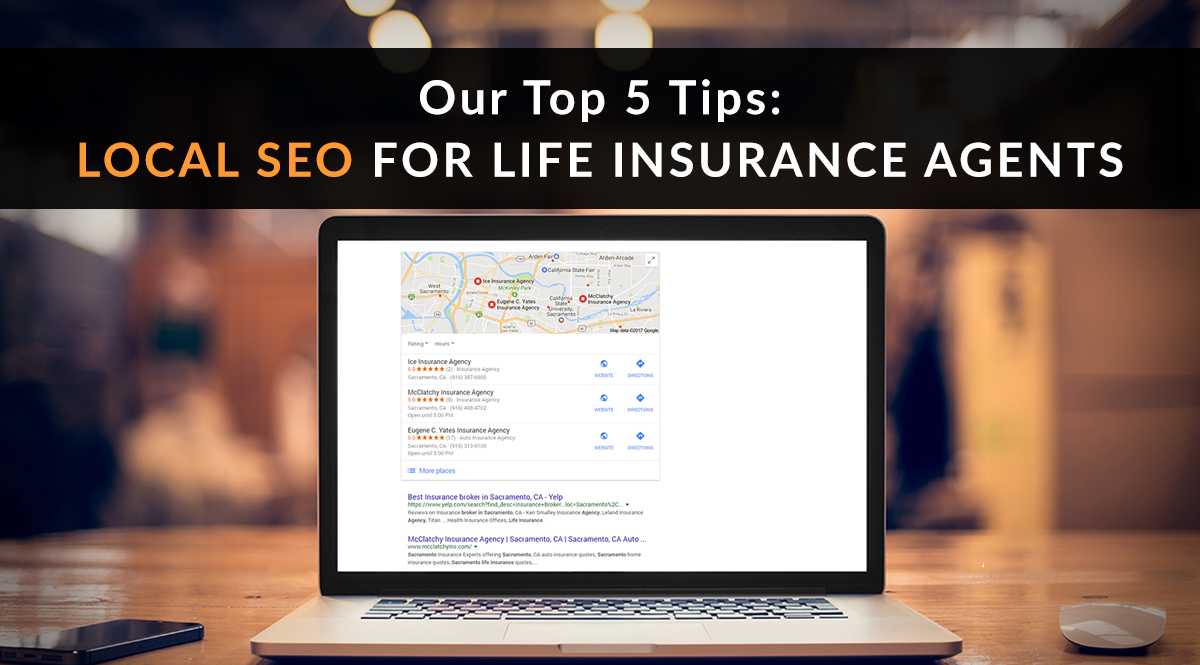When You Get into a Car Accident
The aftermath of a car accident can be overwhelming and confusing. Are you shaken? If so, you’d do well to heed these tips. Pull yourself together and follow these guidelines, especially if you or someone else has been injured.
After the Accident
**1. Pull over to a safe location, if possible.** If you can safely pull over, do so. This will help to prevent further accidents and allow you to exchange information with the other driver(s) involved.
* **Turn on your hazard lights.** This will alert other drivers to your presence and help to prevent further accidents.
* **Stay calm and collected.** It’s natural to feel shaken up after a car accident, but it’s important to stay calm and collected. This will help you to think clearly and make the best decisions for yourself and your passengers.
* **Check for injuries.** First, check yourself for injuries. Then, check your passengers and the other driver(s) involved. If anyone is injured, call 911 immediately.
* **Exchange information with the other driver(s).** Once you’ve checked for injuries, exchange information with the other driver(s) involved. This includes your name, address, phone number, insurance information, and license plate number.
* **Take photos of the accident scene.** If possible, take photos of the accident scene. This will help to document the damage and provide evidence to your insurance company.
* **Report the accident to your insurance company.** You should report the accident to your insurance company as soon as possible. They will be able to help you file a claim and get your car repaired or replaced.
When You Get into a Car Accident
Car accidents can be a frightening and stressful experience. In the aftermath of a collision, it’s natural to feel overwhelmed and unsure of what to do. However, by following these steps, you can help ensure your safety, protect your rights, and make the process as smooth as possible.
Call the Police
After a car accident, it’s crucial to report the incident to the police. This is especially important if there are injuries, property damage, or if you suspect the other driver was under the influence of alcohol or drugs. The police will investigate the accident, take statements from the parties involved, and issue a police report. This report will serve as an official record of the accident and can be helpful in insurance claims and legal proceedings.
When calling the police, be sure to provide them with the following information:
• Your name and contact information
• The location of the accident
• The time and date of the accident
• The make, model, and license plate number of the vehicles involved
• The names and contact information of any witnesses
• Any injuries or property damage that occurred
• If you suspect the other driver was under the influence of alcohol or drugs
The police will typically arrive at the scene of the accident within minutes. Once they have gathered all the necessary information, they will issue a police report. You should obtain a copy of the police report for your records.
When You Get Into a Car Accident
When you get into a car accident, it can be a frightening and confusing experience. There are a lot of things that you need to do, but the most important thing is to stay calm and collected, and remember the following tips.
Exchange Information
After a car accident, the most important thing to do is to exchange information with the other drivers involved. This includes your names, contact information, insurance companies, and license plate numbers. It’s also a good idea to take pictures of the accident scene and any damage to your vehicles. Once you have exchanged information, you should file a police report. This will help to document the accident and provide you with a record of what happened.
Check for Injuries
After you have exchanged information, the next thing you should do is to check for injuries. First, check yourself for any injuries. If you are injured, do not move. Call 911 immediately. If you are not injured, check the other drivers and passengers for injuries. If anyone is injured, call 911 immediately.
Move to Safety
If you are able to move your vehicle, do so to a safe location. This will help to prevent further accidents and injuries. Once you have moved your vehicle to a safe location, turn on your hazard lights and stay in your vehicle until the police arrive.
Cooperate with the Police
When the police arrive, they will investigate the accident and take statements from you and the other drivers involved. It is important to cooperate with the police and provide them with all of the information that you have. This will help them to determine what happened and who is at fault.
Contact Your Insurance Company
After the police have left, you should contact your insurance company to report the accident. They will be able to help you file a claim and get your vehicle repaired or replaced. If you are not sure who is at fault for the accident, your insurance company will be able to help you determine who is liable.
Get a Copy of the Police Report
You should always get a copy of the police report for your records. This will provide you with a detailed account of what happened during the accident. You may need this report if you file a claim with your insurance company or if you decide to take legal action.
When You Get Into a Car Accident
If you find yourself in the unfortunate situation of being involved in a car accident, it’s important to know what steps to take to protect yourself and your interests. Here’s a comprehensive guide to help you navigate this stressful time:
Document the Scene
After an accident, it’s crucial to document the scene thoroughly. Take plenty of photos of the damage to all vehicles involved, including close-ups of any visible injuries. Capture the surrounding area, paying attention to road conditions, traffic signals, and any witnesses present. Note down the weather conditions and time of the accident. This evidence will serve as a valuable record of the circumstances.
Exchange Information
Exchange information with all parties involved in the accident, including drivers, passengers, and witnesses. This includes names, addresses, phone numbers, insurance companies, and policy numbers. It’s also helpful to gather the make, model, and license plate numbers of the vehicles involved.
Contact the Police
In most cases, you should call the police to report the accident. They will create a police report that will provide an official record of the incident. The police can also help direct traffic and ensure the safety of everyone involved.
Seek Medical Attention
Even if you don’t feel injured immediately, it’s important to seek medical attention as soon as possible after an accident. Some injuries, such as whiplash, may not manifest right away. Getting checked out by a doctor will ensure you receive the proper treatment and document any injuries for insurance purposes.
Contact Your Insurance Company
Notify your insurance company about the accident as soon as possible. They will guide you through the claims process and help you with repairs or replacements. It’s important to provide them with all the information you have gathered, including the police report and photos of the damage.
When You Get into a Car Accident
A car accident can be a harrowing experience, leaving you disoriented, injured, and unsure of what to do next. Amidst the chaos, it’s crucial to stay calm and follow these essential steps to ensure your well-being, protect your rights, and minimize the impact of the event.
Seek Medical Attention
Even if you’re feeling okay after a car crash, it’s imperative to get checked out by a medical professional. Oftentimes, injuries can be hidden, and adrenaline can mask pain. A thorough examination will help rule out any internal damage and ensure your health is not compromised.
Exchange Information
After ensuring everyone is safe, exchange information with the other driver(s) involved in the accident. This includes your name, address, phone number, insurance details, and license numbers. Obtaining witness statements and taking photos of the scene can also strengthen your case in the event of a dispute.
Contact the Police
Reporting the accident to the police is not only legally required in most cases but also provides an official record of what transpired. The police report can be invaluable for insurance claims, personal injury cases, and sharing with your attorney.
Do Not Admit Fault
Saying “Sorry” or “My fault” can be a natural reaction after an accident, but it’s a legal minefield. Even if you believe you may be at fault, it’s crucial to refrain from making any admissions that could jeopardize your claim.
Document Everything
Keep track of all expenses related to the accident, including medical bills, repairs, lost wages, and pain and suffering. Writing down the details of what happened, taking notes ofconversations with insurance companies, and saving all documentation will provide a solid foundation for your case.
When You Get into a Car Accident
Whether the consequence of this is big or small, getting into a car accident can be an unforgettable event in one’s life. In the aftermath of the accident, it’s understandable to feel shaken up and unsure of what to do. However, taking the appropriate steps can ensure your safety, protect your legal rights, and facilitate the claims process. This article will guide you through the essential actions to take after a car accident.
Call the Police
After ensuring your safety and the safety of any passengers, calling the police should be your first priority. They will create an official report that documents the details of the accident, including the time, location, parties involved, and any visible damage. This report is crucial for insurance claims and potential legal proceedings.
Exchange Information
Once you’ve contacted the police, exchange the following information with the other drivers involved:
- Name, address, and phone number
- Insurance policy numbers
- License plate numbers
- Vehicle make, model, and year
This information is essential for filing insurance claims and ensuring everyone has the necessary details to follow up.
Document the Scene
Take pictures of the accident scene, including the damage to all vehicles involved. Note any visible injuries, road conditions, and traffic signs. If possible, obtain witness statements from bystanders who may have witnessed the accident. This documentation will provide valuable evidence for insurance companies and legal proceedings.
Contact Insurance Companies
Report the accident to your insurance company and the insurance companies of the other drivers involved. They will initiate the claims process and guide you through the necessary steps. Be sure to provide them with all the information gathered at the scene, including the police report and photos.
Seek Medical Attention
Even if you don’t feel injured immediately after an accident, it’s essential to seek medical attention as soon as possible. Some injuries, such as whiplash or concussions, may not become apparent for several days. Getting checked out by a medical professional will ensure your health and safety, and provide documentation for insurance claims.
Protect Your Legal Rights
If you suspect you’re the victim of a hit-and-run accident, or if you believe the other driver was at fault, it’s wise to consult an attorney. They can advise you on your legal rights, help navigate the claims process, and represent you in court if necessary. Remember, taking prompt action after a car accident can protect your interests, ensure a fair settlement, and help you move forward with peace of mind.
When You Get Into a Car Accident
As sudden as a bolt out of the blue, a car accident can strike, leaving you disoriented and overwhelmed. It’s a heart-stopping moment that sends your mind and body into a tailspin. But amidst the chaos, it’s crucial to gather your wits and take the necessary steps to protect your interests.
After the initial shock subsides, the first thing you should do is ensure your safety and that of your passengers. Once you’re out of harm’s way, it’s time to start documenting the incident.
Gather Evidence
In the aftermath of a car accident, every piece of evidence you gather can be invaluable in building your case. Witnesses, photos, and any other documentation that supports your claim should be collected and preserved.
First, try to get the names and contact information of any witnesses who saw the accident. Their statements can provide crucial insights into what happened, especially if there are disputes about who was at fault.
Next, take plenty of photos of the accident scene. Capture the damage to both vehicles, the surrounding area, and any visible injuries. These photos will help establish the extent of the damage and provide a visual record of the incident.
Finally, gather any other relevant documentation, such as medical records, police reports, and insurance information. These documents will support your claim and help you get the compensation you deserve.
When You Get Into a Car Accident
If you’re involved in a car accident, it can be a frightening and confusing experience. You may be injured, your car may be damaged, and you may not know what to do next. Here are some things you should do if you get into a car accident:
Pull Over
If possible, pull over to the side of the road. This will help prevent further accidents and allow you to assess the situation.
Check for Injuries
First, check yourself and your passengers for injuries. If you or anyone else is injured, call 911 immediately.
Exchange Information
Once you’ve checked for injuries, exchange information with the other driver(s) involved in the accident. This includes your name, address, phone number, insurance information, and license plate number.
Take Photos
If possible, take pictures of the accident scene. This will help document the damage and provide evidence for your insurance company.
Report the Accident
You are required by law to report the accident to the police. They will investigate the accident and file a report.
Hire an Attorney
If you have serious injuries or the other driver is disputing fault, you should consider hiring an attorney. An attorney can help you protect your rights and get you the compensation you deserve.
Follow Up with Your Insurance Company
Be sure to follow up with your insurance company as soon as possible after the accident. They will need to know about the accident and will start the claims process.
Get a Medical Exam
Even if you don’t feel injured, it’s important to get a medical exam after a car accident. Some injuries, such as whiplash, may not show up right away.
Don’t Admit Fault
It’s important to not admit fault to the other driver or the police. Even if you believe you are at fault, it’s best to let the insurance companies and the courts determine who is responsible.




Leave a Reply